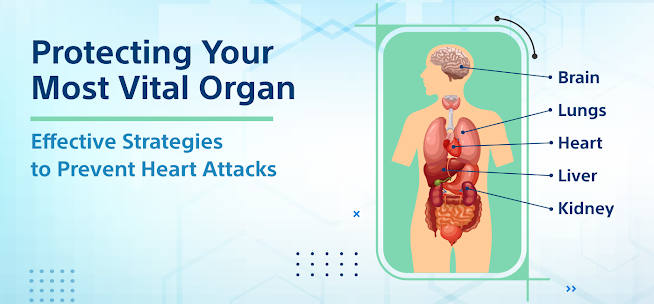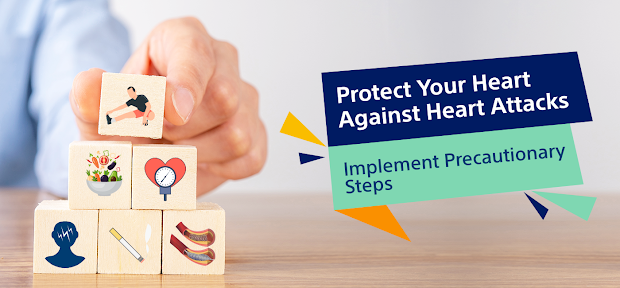Protecting Your Most Vital Organ: Effective Strategies to Prevent Heart Attacks

The heart is one of the most vital organs in the human body, and it is essential to take proactive measures to protect it from the risk of a heart attack . Heart attacks can have severe consequences and are often life-threatening. However, the good news is that many heart attacks can be prevented through lifestyle modifications and early detection of risk factors. This blog will discuss effective strategies to prevent heart attacks and safeguard your most vital organs. Recognizing the Signs of a Heart Attack Before delving into preventive strategies, being aware of the signs and symptoms of a heart attack is crucial. While chest pain is a common symptom, it is not the only one. Other signs include shortness of breath, discomfort or pain in the upper body (such as the arms, back, neck, jaw, or stomach), lightheadedness, nausea, and cold sweats. It is essential to pursue immediate medical attention if you experience these symptoms, as early intervention can significantly affect th...
